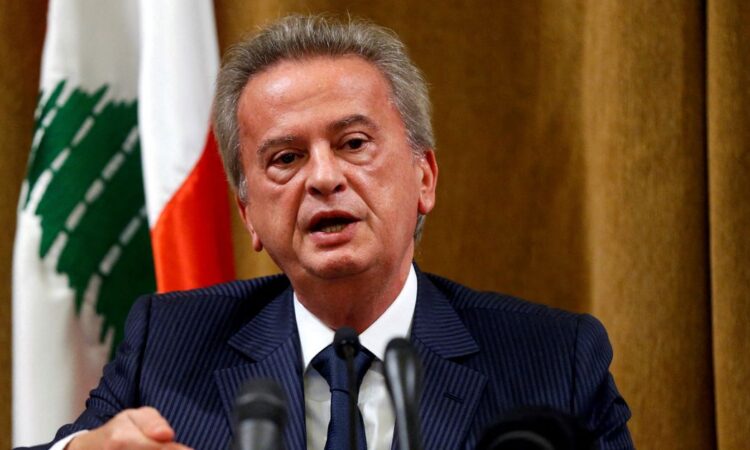
BEIRUT, July 26 (Reuters) – Lebanon’s longtime central bank governor Riad Salameh defended his record on Wednesday in a televised interview just days before he is set to leave office, denying he embezzled public funds and saying his policies benefited the economy.
Salameh, whose 30-year tenure as governor has been stained by a deepening financial crisis and charges at home and abroad of embezzlement of public funds, said he would leave his post when his latest term ends on July 31.
“I am going to turn a page of my life,” Salameh, 72, told local broadcaster LBCI in an interview that appeared to take place in a showcase room at the bank.
“I believe that during these 30 years, there were 27 of them when the Central Bank contributed with its monetary policies to establishing economic stability and development,” he said, apparently referring to the years preceding the meltdown.
His comments came amid a tug-of-war among top politicians over what to do once he leaves office, with a cabinet session set for tomorrow to discuss a possible successor.
Since the economy began to unravel in 2019, the Lebanese pound has lost 98% of its value in the parallel market and most of the population has been locked out of their bank savings.
The collapse followed decades of corruption and profligate spending by ruling politicians, which many Lebanese say Salameh helped facilitate. Some analysts have described his policy to lend to the government as a “Ponzi scheme.”
Salameh said on Wednesday he was being pinned as a “scapegoat” and that his more recent interventions in the money market had helped keep the pound from deteriorating further.
“A lot of people were upset that this bank stayed steadfast, and that this bank on its own, because there was no government during this whole crisis, ran the economy,” he said.
“We wouldn’t have been able to survive for three or four years… so how is this a Ponzi scheme?”
Salameh stands formally accused in Lebanon, France and Germany of embezzling hundreds of millions in public funds from the central bank by collecting commissions as a fee from bond buyers and then transferring the funds to Forry Associates, owned by the governor’s brother.
He denied those charges again on Wednesday. “Neither directly nor indirectly did any money from the Central Bank go to Forry,” Salameh said.
Salameh also faces Interpol Red Notices stemming from arrest warrants in Germany and France. He is still under investigation in at least three other countries over corruption charges.
Reporting by Laila Bassam and Maya Gebeily
Editing by Bill Berkrot
Our Standards: The Thomson Reuters Trust Principles.





